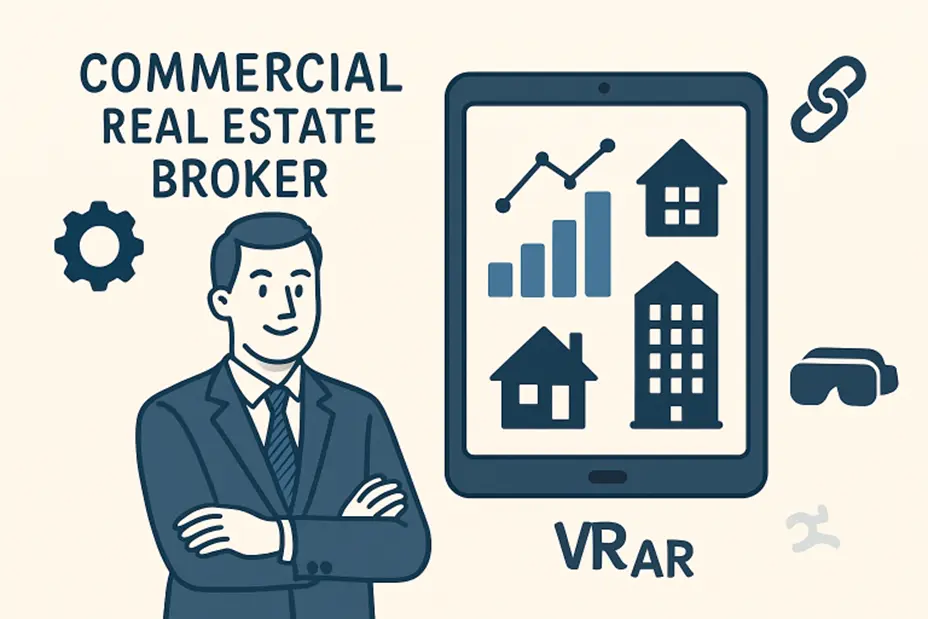Rapid advances in technology and data-driven insight are reshaping the world of commercial real estate. Brokers today rely on vast volumes of information, predictive analytics, and cutting-edge tools to deliver faster, more innovative solutions for their clients. Whether buyers seek to lease a commercial space in Northern Virginia or property owners want an optimized sales process, technology enables precise, efficient, and forward-looking strategies.
Commercial real estate professionals are adopting new platforms to remain relevant and competitive, from streamlining complex transactions with blockchain to providing immersive, remote property tours using virtual reality. These digital advancements increase efficiency, minimize risk, and improve the client experience. In such a fast-evolving industry, brokers who can leverage data and digital tools enjoy a considerable edge in the marketplace.
On the tenant and investor side, the expectation for transparency and speed is higher than ever—driving adoption of technologies that deliver on-demand data, greater security, and enhanced portfolio performance. These shifts underscore the industry’s transformation from a traditional handshake model to one that seamlessly integrates people and technology for optimal outcomes.
Keeping ahead of these changes is crucial for anyone involved in commercial real estate, as failing to adapt can lead to missed opportunities and reduced market share. Digital literacy and a willingness to embrace new tools are no longer optional but prerequisites for success in this dynamic field.
Data-Driven Decision-Making
With the explosion of big data and artificial intelligence (AI), commercial real estate brokers now have the capabilities to make informed and strategic decisions on behalf of their clients. Platforms that aggregate and analyze market trends, comparable leasing rates, vacancy statistics, and even regional economic shifts give brokers unprecedented insight. These powerful analytics help identify emerging opportunities, optimize lease negotiations, and accurately forecast supply and demand cycles. AI-powered tools are also used for tenant profiling and predictive maintenance, further enhancing operational efficiency and property value. According to Forbes, these analytic approaches quickly become industry standard in major markets worldwide.
Virtual and Augmented Reality in Property Marketing
Virtual Reality (VR) and Augmented Reality (AR) revolutionize how brokers market and lease properties. Prospective tenants or investors can now embark on immersive property tours from anywhere in the world, saving time and broadening the reach for property owners. These digital experiences are especially valuable for out-of-town or international clients seeking a realistic sense of space without traveling. Furthermore, AR platforms enable designers and tenants to overlay 3D furnishings, fixtures, or renovations on actual spaces, providing a clearer vision of a property’s potential. These technologies increase engagement, speed decision-making, and offer an innovative edge in a crowded market. As The Wall Street Journal reported, such digital initiatives are reshaping how properties are bought, sold, and leased globally.
Blockchain Enhancing Transaction Efficiency
Blockchain technology is increasingly implemented within commercial real estate to improve transaction transparency, security, and efficiency. Smart contracts—self-executing contracts with the terms directly written into code—automate lease agreements, escrows, and payment solutions. This minimizes administrative overhead, reduces fraud risks, and nearly eliminates the potential for human error. Additionally, blockchain-backed digital platforms help make property ownership more liquid, enabling quicker and safer buying, selling, or financing. The transparent and immutable nature of blockchain ensures all parties have access to accurate, up-to-date records—streamlining traditionally complex real estate deals. According to Deloitte, blockchain technology can transform core CRE operations, such as purchase, sale, financing, leasing, and management transactions.
Smart Building Technologies
Smart buildings with Internet of Things (IoT) sensors and automation systems dramatically improve operational efficiency and tenant satisfaction. Through real-time monitoring and control of lighting, HVAC, access, and security, these properties reduce energy consumption and maintenance costs while providing tailored experiences for occupants. Tenants benefit from intuitive mobile apps for managing facility access, requesting repairs, or adjusting in-suite environmental controls. As building systems become more intuitive, brokers are better positioned to market properties not just for their location, but also for their sophisticated, tenant-friendly infrastructure.
Automation in Transaction Management
Transaction automation is rapidly reducing inefficiencies within the real estate deal cycle. Innovative platforms integrate electronic signatures, cloud-based document storage, and automated compliance checks so brokers can close deals faster and with fewer errors. Automated document auditing and workflow management also free brokers from time-consuming administrative tasks, allowing them to focus on value-added activities such as strategy and client advisement. This new wave of automation marks a clear departure from the paperwork-heavy legacy processes of the past.
Cybersecurity Measures for Data Protection
Commercial real estate transactions now involve unprecedented amounts of sensitive digital information—including financial data, identification, and proprietary property records. As brokers access more data through cloud solutions and mobile devices, robust cybersecurity measures are imperative. Advanced encryption, multi-factor authentication, and regular vulnerability assessments safeguard these transactions against breaches and fraud. Brokers prioritizing data privacy build trust, distinguishing themselves as leaders in a security-conscious world.
Balancing Technology with Human Expertise
While AI and automation deliver efficiency and robust analytics, the relationship-driven aspect of commercial real estate remains vital. Skilled brokers blend technology and market insight with negotiation prowess, creative problem-solving, and personalized client service. The thriving brokers harness technological tools to elevate—not replace—their expertise, providing clients with actionable intelligence and a human touch throughout each transaction. The balance between digital adoption and human acumen will ultimately define the value brokers bring.
Conclusion
Technology and data are no longer optional add-ons in commercial real estate—they are core drivers of industry success. Brokers who invest in digital tools and embrace data-driven strategies are setting new standards for client service and transaction efficiency. As the sector evolves, staying abreast of tech innovation will be key to unlocking future growth, securing a competitive edge, and meeting tenants, owners, and investors’ ever-rising expectations.
Also Read-Speed Control in Pipeline Cleaning: Techniques, Benefits, and Best Practices


